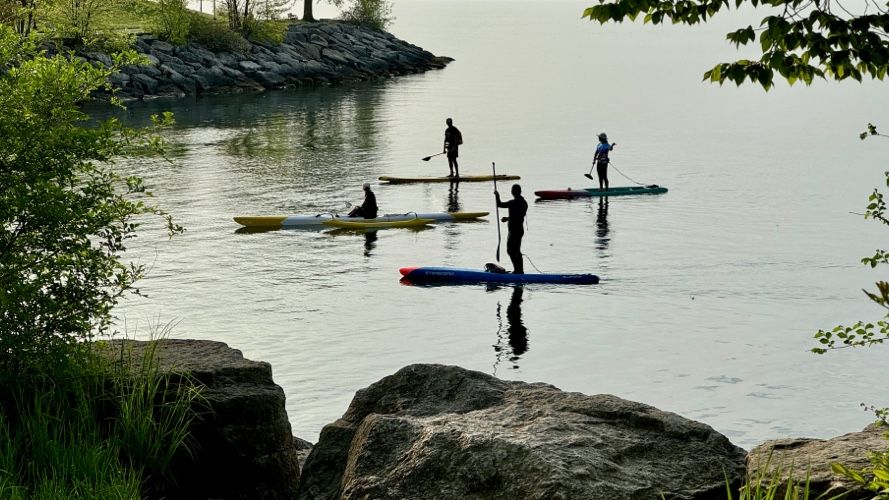Overnight camp readiness: Is your child prepared for sleepaway camp?

Introduction
Sending your child to overnight camp for the first time is a big decision. As a parent, you’re likely wondering: is my child really ready? From emotional maturity to practical skills, this guide walks you through everything you need to know about overnight camp readiness. We understand how overwhelming it can feel - but with the right preparation, you can set your child up for a memorable and successful camp experience.
Key takeaways:
- Look for emotional and social signs that your child is ready
- Homesickness is normal and manageable with support
- Readiness doesn’t depend solely on age
- Talk openly with your child and include them in the decision
Table of Contents
Signs your child might be ready
Readiness isn’t just about age - it’s about confidence, communication, and curiosity. If your child shows enthusiasm for independence, handles sleepovers well, and expresses interest in camp activities, they may be ready for sleepaway camp.
Watch for signs like managing routines without help, asking questions about camp life, and bouncing back from minor setbacks. Even if your child seems unsure, your encouragement can go a long way.
Managing homesickness
It’s completely normal for kids to miss home - especially during their first overnight experience. What matters is how it’s handled. Most camps train staff to support homesick kids and encourage gradual adjustment through engaging activities and emotional support.
You can help by talking about what to expect and avoiding promises to “rescue” them. Include familiar comforts in their bag and stay positive during drop-off. Trust that your child can adapt - even if there are a few bumps along the way.
How to choose the right overnight camp
Choosing the right overnight camp can feel like a major decision, especially if your child is heading away for the first time. But it doesn’t have to be overwhelming. Start with what aligns best with your family values, your child’s readiness, and the kind of summer experience you both envision.
-
Know your child’s needs and interests.Do they love group adventures, or prefer quiet reflection? Camps vary widely - from rugged outdoor programs and sports intensives to arts-focused or tech-based experiences. Matching your child’s personality to the camp culture is one of the best ways to ensure a positive experience.
-
Readiness matters more than age.Some 7-year-olds are ready to spend a week away from home, while others need more time. Think about how your child handles sleepovers, routines, and separation. Choosing a program with appropriate session lengths and support systems helps make the transition smoother.
-
Review the schedule and structure.Look at how the days are planned - are they jam-packed with activities or do they allow for rest and choice time? The right balance of structure and flexibility can impact how your child settles into camp life.
-
Explore cabin life and supervision.Overnight camps group kids by age or grade into cabins or tents. Ask about camper-to-counselor ratios, how night routines are handled, and how conflicts or homesickness are supported. A well-managed cabin environment is essential to your child’s comfort.
-
Ask about health, safety, and staff training.Not every reputable camp is ACA-accredited - and that’s okay. What matters most is how they train staff, handle emergencies, and support campers’ physical and emotional well-being. Ask about medical care on site and how they communicate with parents if issues arise.
-
Consider the camp's culture and values.Each camp has its own approach to things like inclusivity, competition, spirituality, or screen time. Read the mission statement, review past photos or videos, and don’t be afraid to ask what values are prioritized during the summer.
-
Connect with other parents.Personal stories from local parents or school communities can offer insights that websites won’t. If possible, attend a camp fair, info session, or open house to hear real experiences and ask questions.
Overnight camp is an incredible opportunity for growth, independence, and fun. With thoughtful planning and open conversations, you can find a program where your child feels supported, safe, and excited to return each summer.
Safety and supervision at camp
Safety is a top concern for all parents - and rightfully so. While many families prefer camps with ACA accreditation for their high safety standards, it’s not the only marker of a great camp. Look for clear policies on camper supervision, staff training, and emergency preparedness.
Ask how staff are vetted, how homesickness is handled, and how camp leaders communicate with families. Open dialogue with the camp director can offer major peace of mind.
FAQ
- What age is best to start overnight camp?
- Most kids start between 7–10 years old, but readiness is more important than age. Consider your child’s comfort level and past experiences with independence.
- How can I prepare my child emotionally?
- Talk openly about the camp experience, encourage questions, and practice sleepovers beforehand. Confidence grows with familiarity and support.
- Should I choose an ACA-accredited camp?
- ACA camps meet rigorous safety and quality standards, but there are excellent non-accredited camps as well. What matters most is fit, supervision, and philosophy.
- What if my child doesn’t make friends right away?
- Counselors are trained to help kids build connections. It’s common for kids to take a day or two to warm up - and camp friendships often form fast!
- Is it okay to call or visit during camp?
- Most camps have specific policies about communication to help kids adjust. Too much contact can increase homesickness - stick with letters unless it’s urgent.
Conclusion
If you're feeling unsure about sending your child to overnight camp, you're not alone. The key is preparation - and trust. Trust in your child, in your own instincts, and in the camp staff you’ve carefully selected. Whether your child comes home with a few bug bites or a head full of memories, it will be a growing experience for the whole family.



